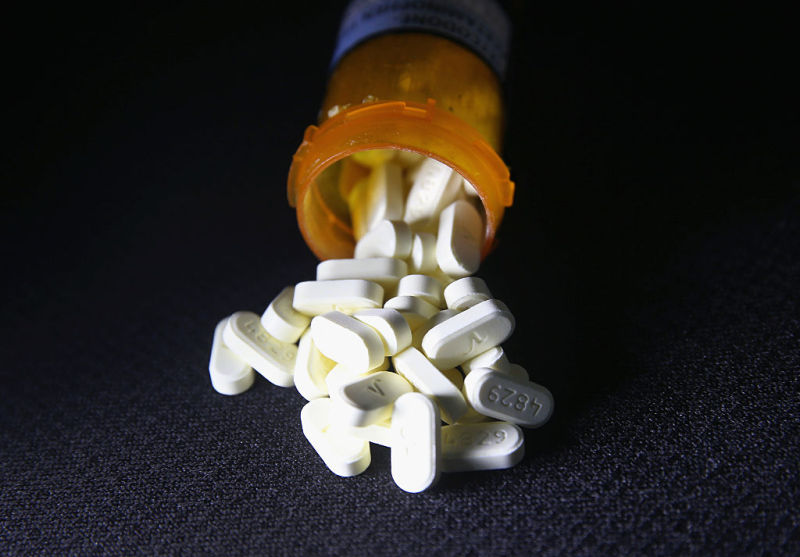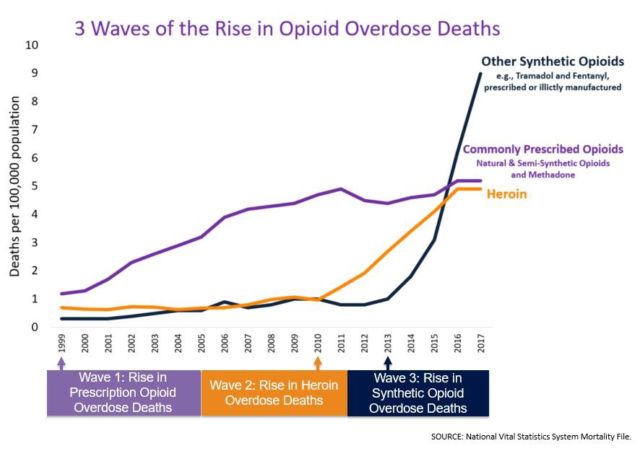Alleged kingpin of massive, deadly fentanyl-laced pill scheme stands trial

Utah man Aaron Shamo, 29, will stand trial starting today over federal charges that he allegedly ran a deadly, multimillion-dollar counterfeit opioid racket on the black market amid the country’s devastating opioid epidemic.
Federal prosecutors allege that Shamo and his accomplices pressed hundreds of thousands of counterfeit pills in the basement of Shamo’s suburban Salt Lake City home and sold them on the dark Web to customers all across the US, making millions in the process. The pills resembled prescription opioid painkillers, such as oxycodone, but they were actually fakes laced with the highly potent and deadly opioid fentanyl, which Shamo allegedly imported from China illegally.
Prosecutors linked the pills to dozens of customer deaths, according to the Associated Press. However, Shamo is charged in connection to only one death, that of a 21-year-old who died in 2016 after snorting a fentanyl-containing pill that was made to resemble prescription oxycodone.
Fentanyl is 50 to 100 times more potent than morphine, according to the Centers for Disease Control and Prevention. Public health experts at the agency say that illicit forms of the drug—such as the pills in Shamo’s case—have largely driven a massive third wave of opioid overdose deaths in the country. Overdose deaths involving synthetic opioids other than methadone (largely fentanyl) surged almost 47% from 2016 to 2017, killing 28,400 people in 2017.

The case against Shamo follows a crackdown on the influx of Chinese fentanyl by US federal prosecutors. In October of 2017, for instance, the Department of Justice indicted two men in China for selling fentanyl directly to US customers. In January of 2018, a congressional report highlighted the problem, noting how easy it was for Americans to have fentanyl shipped directly to them from China.
Cash and pills
The case against Shamo began to come together in June 2016 when US customs agents intercepted a package of fentanyl allegedly addressed to someone receiving it on Shamo’s behalf. After that, agents intercepted additional fentanyl shipments from a Chinese company called Express, which federal prosecutors are also investigating.
Federal prosecutors allege that once Shamo and his accomplices received the fentanyl, they cut the powder with fillers and dyes and pressed them into pills that resembled prescription drugs. They then allegedly sold them on a dark Web marketplace called Pharma-Master, which sometimes processed 20 to 50 orders a day.
At the end of 2016, federal investigators nabbed a single day’s worth of outgoing packages from Shamo’s alleged operation. The 52 packages shipped on one day included 35,000 fentanyl-laced pills in total. A single package in that collection was estimated to have a wholesale value of $400,000. The packages were addressed to homes in 26 states.
When federal agents raided Shamo’s home later in 2016, they found a pill press still running in the basement and more than $1 million in cash stuffed into garbage bags.
Shamo’s family says that he is being unfairly singled out in the case and that others involved were more deeply involved but are now getting off easier.
“He was brought in and saw the opportunity for making money, and he didn’t truly understand the danger behind what he was doing, how dangerous the drugs were,” Shamo’s father Mike Shamo told the AP. “I think he was able to separate what he was doing because he never saw the customer. To him, it was just numbers on a screen.”
https://arstechnica.com/?p=1549959